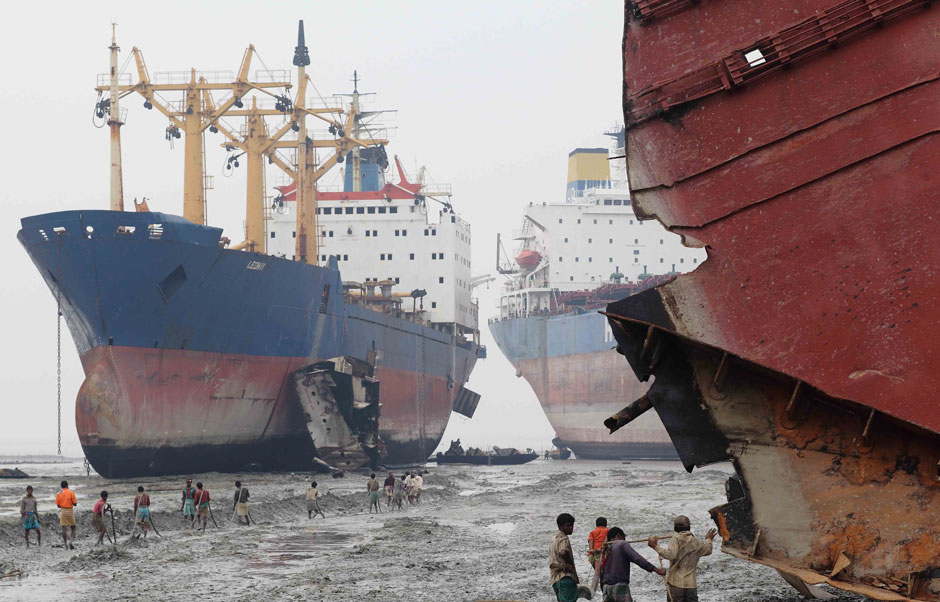At least five workers have lost their lives while dismantling out of service ships at shipbreaking facilities in Bangladesh in the final quarter of 2020, the latest quarterly report from the NGO Shipbreaking Platform shows.
Two workers fell to their deaths while dismantling two different vessels.
In one of the cases, local sources reported that the cutting process was happening at a very fast pace since the workers were under pressure to quickly finish the job.
Two additional men died after falling sick at Janata Steel and Mother Steel shipbreaking yards, however, the cause of their deaths remains unclear.
Finally, a 35-year old man lost his life after being hit by a large iron piece at Khawja shipbreaking yard in Chattogram, Bangladesh. In 2020, at least four accidents were reported at shipbreaking yards owned by Kabir Steel group.
The NGO Shipbreaking Platform publishes quarterly reports denouncing dirty and dangerous practices, such as the dumping of end-of-life vessels on the beaches of developing countries.
The platform has been very critical of the unsafe ship-breaking methods at yards in South Asia as they continue to cause toxic waste being released on the beaches causing maritime pollution.
Poor work safety practices are often cited as the main cause of the incidents that occur at shipbreaking yards in South Asia.
There were a total of 170 ships broken in the third quarter of 2020. Of these, 65% or 110 ships were sold to the beaches of South Asia, the NGO Shipbreaking Platform said in its Q3 report.
Almost one-third of the ships sold to South Asia in Q3 changed flag to the registries of Comoros, Gabon, Palau and St. Kitts and Nevis just weeks before hitting the beach.
The flags are not typically used during the operational life of ships and offer ‘last voyage registration’ discounts. They are particularly popular with the middlemen scrap-dealers that purchase vessels cash from ship owners, and are grey- and black-listed due to their poor implementation of international maritime law.
The reflagging is often used to circumvent EU rules on breaking ships at facilities that are safe and environmentally sound, which often means they are more expensive.
